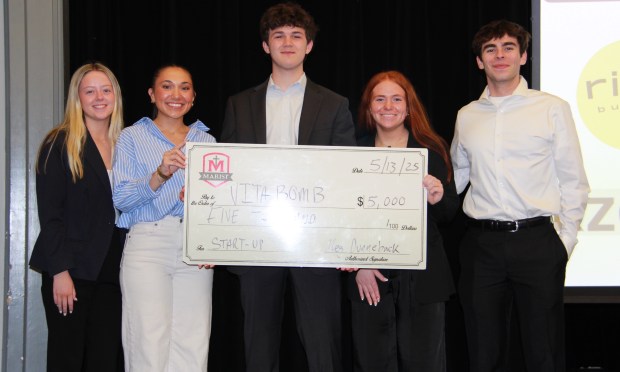In the first years of the last century, one of seven brothers of an Orthodox Jewish family in Eastern Europe understood at age 13 what the rest of his life would be like.
He would follow in the footsteps of his grandfather, Israel Salanter, a distinguished rabbi who developed a set of 13 personal ethical principles (“middoes”) which, if followed, would guide a person’s behavior though life.
This path included his bar mitzvah in a synagogue in which his grandfather once preached. From there he entered a noted seminary (Slobodka) to study the biblical texts in the light of its moral considerations. This, one could assume, would be his life’s work.
It was not to be.
The Romanov family ruled this Russian Empire with a heavy hand. Jews needed to serve 20 years if in the military. Jews could only live in specific areas and could be forced out at a given moment. Life was not a “Fiddler on the Roof” sing-along. It was cruel and capricious. Settlements were destroyed by a “pogrom.” It is a Russian word meaning “to wreak havoc and to demolish violently.”
And it worked.
It was in this tragic and turbulent time that our young scholar began his strict studies, but his natural curiosity about the world around him changed his life.
He once was accused of reading a newspaper. True, he said. At another time, he wondered aloud as to some of the prohibitions which he was forced to accept. Also true, he admitted. The world was changing, and he wanted to know why and wanted to know how. He left the seminary and took courses in technical schools on the worldly subjects of history, science and mathematics.
Soon he became a messenger for the growing pockets of those fighting for change. It was a career not without enormous cost.
He was arrested and was one of more than 200 who stood trial in a Russian court. At the age of 17, was chosen by his fellow captives to make the prisoners’ final plea. If they don’t hang you, they told him, there is hope for us.
“Rivers of blood,” he told the court “will avail you nothing. A new generation will cause your house to fall.” And, of course, this young rebel ended it with “long live the revolution.”
Some 102 were hanged, 52 given life sentences. The youthful speaker was given an eight-year term in a coal-mining prison camp in central Siberia. One more thing, said the judge, you get to wear a ball and chain for your words.
The camp in Igarka, 60 miles north of the Arctic Circle, was his university and his battleground. He helped lead hunger strikes, fought for food, for books and for the chance to walk without chains. Some took the ultimate protest by killing themselves. As punishment, the leather strap of the iron chain used around the ankle to keep the metal away from the bone, was removed.
In 1913, in “celebration” of Romanov’s ascension to the throne, the ball and chains were eliminated. He wore the deep indentation made by the chain clamp on his right ankle the rest of his life.
Fellow prisoners conducted classes where he learned archeology, biology and even more history. He learned English through the novels of Charles Dickens. He fought, he shouted, he bled and in the end, in 1917, he emerged from his prison.
He knew one of his brothers emigrated to Canada and managed to move ever eastward through Mongolia, Manchuria, China and Japan. He was able to board a freighter for Vancouver, and from there to where his brother ran a business in Prince Albert, Canada.
His later years were not easy. Those prison years took their toll. Arthritis crippled his hands so much that he needed two clenched fists to hold one cup of coffee.
He worked as a school teacher for Jewish organizations in New York, Chicago, Boston, Cincinnati and Milwaukee (where he met his wife, who was singing in the Ladies Garment Workers Union chorale).
Years later, he told me that while awaiting trial in Russia the family told him how disappointed they were by his actions. At the same time, he said the family of another prisoner, a Russian noble, Count Ignatieff, was told that no matter what, he family still loved him.
Family, he said, was the strongest tie, no matter what, no matter who.
He was Boris Shnay. He was my father, and our son Alan bears his name.
This is a hope that the past Father’s Day was important for you.
Jerry Shnay, at jerryshnay@gmail.com, is a freelance columnist for the Daily Southtown.





